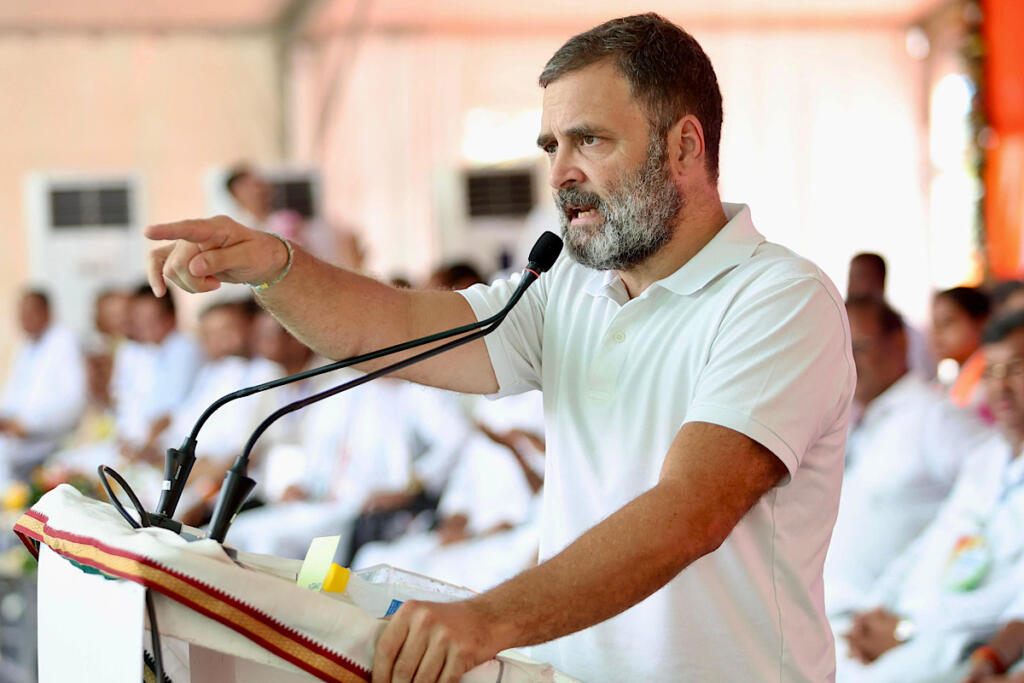During an event in Malappuram, Kerala, Rahul Gandhi, found himself in a contemplative position. He pondered whether to persist in representing Wayanad or to revert to his traditional bastion, Raebareli, in the Lok Sabha. Injecting a hint of humor, Gandhi juxtaposed his decision-making style with that of Prime Minister Narendra Modi, stressing the human rationale behind his choices rather than “Strange Parmatma’s” guidance. This light-hearted moment encapsulated the intricacies of political decision-making amidst public scrutiny and personal deliberations.
Historical Context
In the 2019 elections, Rahul Gandhi experienced a notable defeat in Amethi. However, his subsequent triumph in Wayanad marked a pivotal moment in his political journey. Despite the setback, Gandhi’s strategic move to contest from Wayanad guaranteed his presence in the Lok Sabha, symbolizing a broader shift towards a more inclusive and pan-Indian approach to politics. This strategic decision has secured his political future.
Strategic Use of Religion
The event shows how politicians use religion and divine ideas to get votes during elections. Rahul Gandhi made fun of Prime Minister Narendra Modi’s claim of getting divine guidance. This makes us think about how religion is used just for winning votes before elections and then it is mocked. It shows that sometimes politicians may not be sincere in what they say. This also makes us think about how religion and politics mix in India. Often, religion is used more for show than for real reasons. This is different from Narendra Modi, who always respects religious beliefs.
Not Dependent on Parmatma
Gandhi wittily remarked on his independence from divine guidance. He highlighted Modi’s statements, contrasting them with his own pragmatic approach. This stark contrast underscores Gandhi’s commitment to human-centered decision-making based on reason and empathy rather than supernatural influence. This narrative, however, raises questions about Gandhi’s inconsistent portrayal of religious sentiments for electoral gains, compared to Modi’s consistent reverence for religion. While Gandhi’s remarks may alienate theists, Modi’s respectful stance towards religion resonates with devout voters, presenting a clear distinction in their approaches to faith and politics.
A Connection with the Masses
Rahul Gandhi’s political strategy often oscillates between exploiting religious sentiments for electoral gains and later undermining them for political mileage, a sharp contrast to Narendra Modi’s respect for all religions. Initially, Gandhi leverages religion and divine references to woo specific vote banks, portraying himself as a champion of the underprivileged. However, post-elections, he adopts a mocking tone towards religion, alienating the theist population. However, Gandhi’s decision-making abilities are frequently questioned, leading to widespread mockery and criticism, further diminishing his credibility on the national stage.
Electoral Triumphs
Rahul Gandhi’s wins in Raebareli and Wayanad highlight his political prowess. In Raebareli, he clinched victory with a massive margin, solidifying his stronghold. Similarly, in Wayanad, he triumphed, showcasing broader appeal. These victories bolster his stature in the Congress and nationally, challenging the ruling elite. However, his tactics draw criticism. Gandhi’s exploitation of religion for votes, followed by mocking, contrasts with Modi’s respect for faith. Additionally, his frequent missteps invite ridicule nationwide.
Conclusion
In conclusion, Rahul Gandhi’s wavering stance on his parliamentary representation underscores the intricacies of Indian political maneuvering. While he portrays himself as a champion of the people’s interests through human-centric governance and grassroots engagement, his use of religion and divine references for vote-bank politics is glaring. Initially leveraging religious symbolism to garner support, he later dismisses these sentiments, often hurting the sentiments of theists. In stark contrast, Narendra Modi’s consistent respect for religion stands out.In conclusion, Rahul Gandhi’s wavering stance on his parliamentary representation underscores the intricacies of Indian political maneuvering. While he portrays himself as a champion of the people’s interests through human-centric governance and grassroots engagement, his use of religion and divine references for vote-bank politics is glaring. Initially leveraging religious symbolism to garner support, he later dismisses these sentiments, often hurting the sentiments of theists. In stark contrast, Narendra Modi’s consistent respect for religion stands out.
ALSO READ: Modi Requests to Remove ‘Modi Ka Parivaar’ from Social Media Handles
